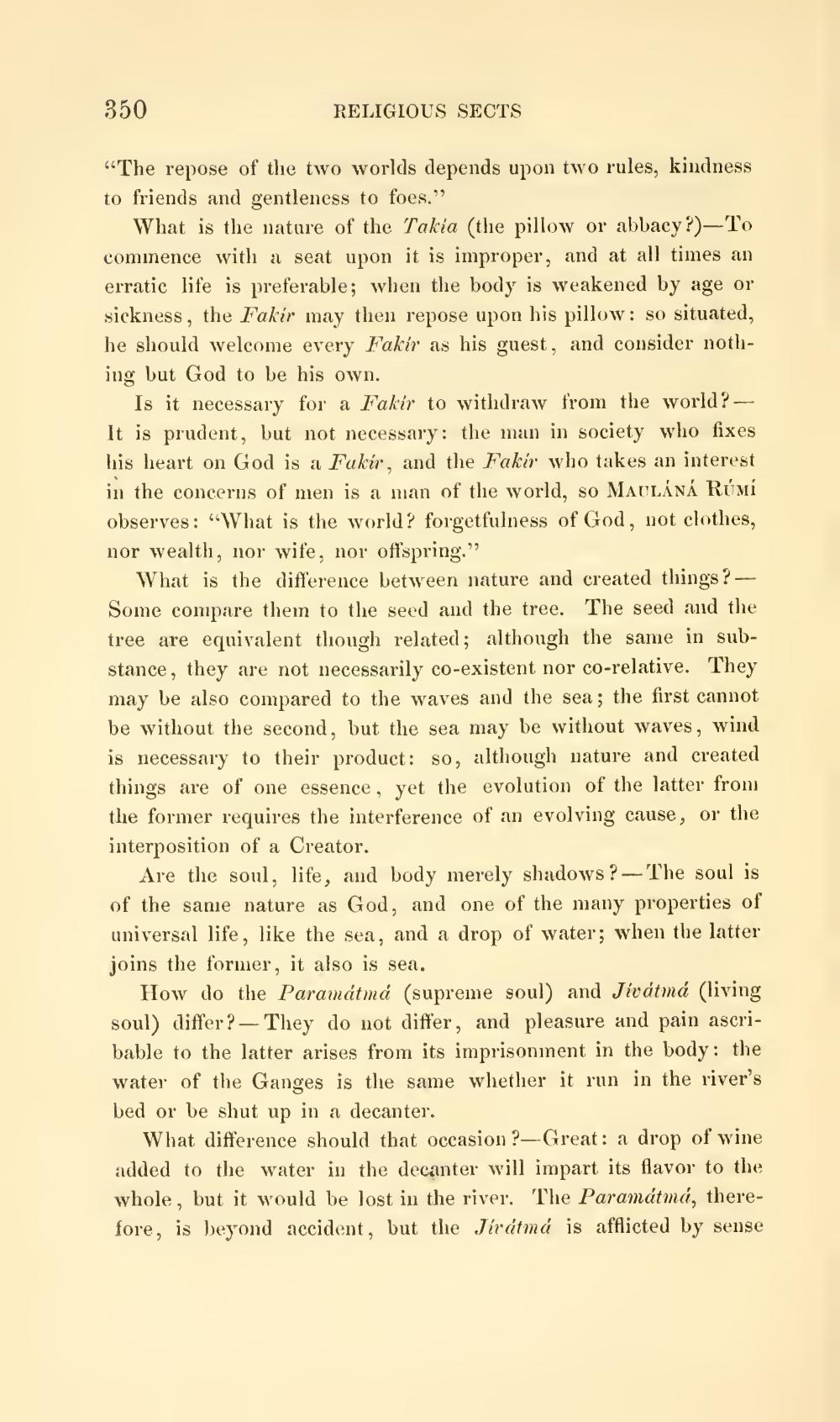________________
350
RELIGIOUS SECTS
“The repose of the two worlds depends upon two rules, kindness to friends and gentleness to foes."
What is the nature of the Takia (the pillow or abbacy?)– To cominence with a seat upon it is improper, and at all times an erratic life is preferable; when the body is weakened by age or sickness, the Fakir may then repose upon his pillow: so situated, he should welcome every Fakir as his guest, and consider nothing but God to be his own.
Is it necessary for a Fakir to withdraw from the world? It is prudent, but not necessary: the man in society who fixes his heart on God is a Fakir, and the Fakir who takes an interest in the concerns of men is a man of the world, so Mauláná Rúmí observes: "What is the world? forgetfulness of God, not clothes, nor wealth, nor wife, nor offspring."
What is the difference between nature and created things? - Some compare them to the seed and the tree. The seed and the tree are equivalent though related; although the same in substance, they are not necessarily co-existent nor co-relative. They may be also compared to the waves and the sea ; the first cannot be without the second, but the sea may be without waves, wind is necessary to their product: so, although nature and created things are of one essence, yet the evolution of the latter froni the former requires the interference of an evolving cause, or the interposition of a Creator.
Are the soul, life, and body merely shadows ?- The soul is of the same nature as God, and one of the many properties of universal life, like the sea, and a drop of water; when the latter joins the former, it also is sea.
How do the Paramátmá (supreme soul) and Jivátmá (living soul) differ? — They do not differ, and pleasure and pain ascribable to the latter arises from its imprisonment in the body: the water of the Ganges is the same whether it run in the river's bed or be shut up in a decanter.
What difference should that occasion ?-Great: a drop of wine added to the water in the decanter will impart its flavor to the whole, but it would be lost in the river. The Paramátmá, therefore, is beyond accident, but the Jirátmá is afflicted by sense




